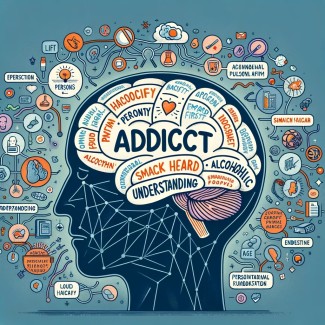The Power of Words: A Deep Dive into the Language of Addiction

Language is a multifaceted tool that not only reflects human thoughts but actively molds them. It functions as both a window and a barrier in human communication, revealing the depths of cultural, historical, and personal beliefs while also defining and sometimes distorting our perceptions. The significance of language becomes particularly evident in the realm of mental health and addiction. The terms we employ in casual conversations or policy documents hold tremendous power – they can uplift or marginalise, clarify or misrepresent.
A journey through the labyrinth of language reveals how historical labels like "addict" or "alcoholic" have stigmatised individuals. These labels have oversimplified complex human experiences and assigned judgment rather than understanding. These stigmatising words perpetuated isolation, prejudice, and adverse life consequences. Academic research reinforces the impact of language on societal stigmas.
The effect of language extends beyond personal interactions; it influences societal narratives, institutional decisions, and public perceptions. Policies like the "War on Drugs" demonstrate the consequences of confrontational language. In the United States and the UK, such policies led to mass incarceration and marginalised minority communities. They failed to differentiate between substance use motives, contributing to stigmatisation and hindering recovery. However, the power of language is not solely destructive. Grassroots movements are challenging traditional narratives, advocating for more compassionate language and policies. The evolution of language reflects our expanding understanding of addiction and mental health, prompting us to choose empathy, understanding, and support over judgment and prejudice, fostering positive change in society. Empirical evidence supports the need for nuanced, medically informed approaches to language and policy.
In the complex tapestry of human communication, the words we choose to describe addiction wield transformative power. They go beyond conveying information; they shape our collective narrative and societal attitudes. "The Power of Words" is not just a title; it is a call to wield our words responsibly, with empathy and understanding, as they can perpetuate biases or foster healing and connection in the complex interplay between language and perception. This exploration concludes with an invitation to continue the conversation and take meaningful action, recognising the weight of every word and the value of every voice in this ongoing journey.